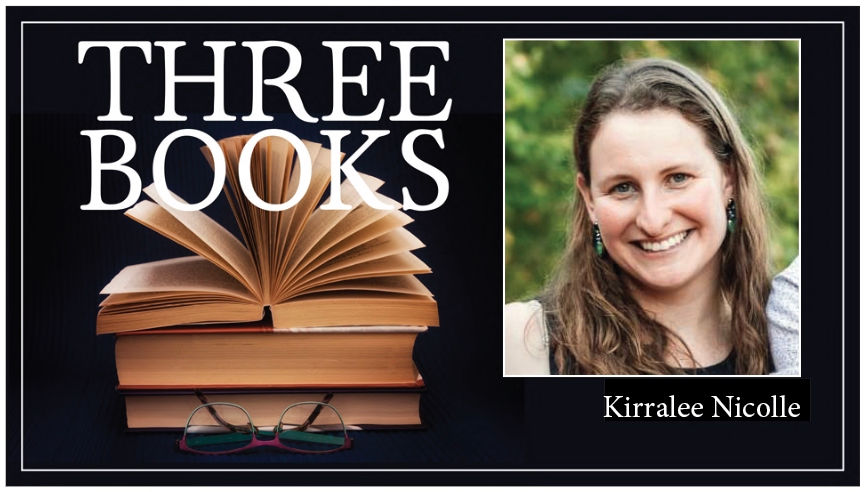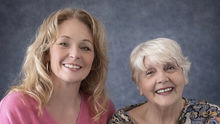Reading between the lines
- Jul 21, 2025
- 3 min read
Updated: Jul 21, 2025

Salvos Online continues a new weekly column – Three Books. Today’s guest bookworm is Kirralee Nicolle, who is a journalist with The Salvation Army editorial department. We asked Kirralee three book-related questions:
Besides the gospels and Psalms, which is your favourite book in the Bible and why?
I’ve always loved the pacing and warmth of Hebrews. It’s a bit of an odd book – it’s more reflective, literary and big-picture than the rest of the Epistles, which kind of makes sense as we don’t really know if Paul wrote it or not, so it’s possible that the author was someone else with a different focus.
I particularly like the ‘by faith’ chapter – Chapter 11. For two reasons – it reminds me of the humanity and spirituality of familiar Old Testament figures, but it also feels a bit like the reprise in a musical, when all the characters are brought forward and we get to hear a final word about them. I can imagine each of them shrugging, as if to say, “Yep, we didn’t really understand either” before disappearing behind the curtain.
It’s a book that has carried me through many seasons of life, as I’ve gone back to it over and over to be soothed by the words and reminded of why the whole Gospel is not just necessary, but applicable to us today as those with free access to Jesus.
Besides the Bible, what is a Christian book that has strongly influenced your faith?
A few years ago, I went through a really difficult time in my faith, and found myself, as many troubled Western Christians do – reading the work of the late Rachel Held Evans. All her books were fantastic, but one that surprised me with its impact was A Year of Biblical Womanhood. It was a tongue-in-cheek idea – Evans decided to devote a year of her life to trying to live according to the virtues, cultural practices and rituals applied specifically to women in Scripture.
This included her sleeping outside in a tent, interviewing polygamists and trying not to be snarky (also a work in progress for me!). It was by turns funny, sad and poignant, but what struck me most about it was her tone. Being raised in the church, I’ve read a lot of books about women and womanhood, but few that present women and their bodies so matter-of-factly. Evans had no hang-ups about needing to sanitise the lives and struggles of women, speaking about them in the same tone a writer would about men.
It helped me to better integrate the body and soul that God has given me, which we often tend to see as a confusing duality, thanks to lingering Augustinian ideas about the ‘flesh’ and its perceived weaknesses.
What is a secular book that has revealed to you a Christian message or theme?
Grieving, I’ve found, is not something we are ever prepared to do. No one sits you down and says, “When this particular loss hits, you will probably feel like this”; you just have to figure it out when it comes. Before I was first pregnant, I had no idea of the fact parenting, at all points, seems to deliver joy and sadness in equal portions.
After my first pregnancy ended in miscarriage, I found few places to explore my grief, which felt gritty or empty enough to hold the depth of my misery. Even though I soon after had my daughter, I was facing my own Ecclesiastes moment, where everything was nothingness.
The only book I found to match this process was Blue Nights, by Joan Didion. In it, Didion wades in a nihilistic grief after the death of her adult daughter, Quintana. Didion likens the anticipation of loss to the onset of ‘blue nights’, the time of the evening towards the end of summer when the light turns blue and fades into black. While this is all very miserable, it was the recognition I needed at the time, which helped me put words and concepts to something that felt so bleak, so final. It was from this low point that I began to rebuild my sense of hope and anticipation of good, something which would have been stalled otherwise.
Something I will always find powerful about literature is its ability to connect us and to humble us. We learn that what we feel is not so unusual or different, and at least for me, it reminds me to open up and say what I mean, because it may just connect with someone else as well.






